Indie Retro Homebrew Showcase Interview: Let's get skating with SkateCat!
Indie Retro Homebrew Showcase from MAGFest 2024 exhibited a bunch of amazing games, and Mega Cat Studios had the chance to interview the awesome folks about their stories and experiences while developing their games!
Welcome to Mega Cat Studio's Indie Retro Homebrew Showcase interview series, where we dive into the world of homebrew games that capture the spirit of classic gaming!
Our first feature shines a spotlight on "SkateCat," a homebrew game created by the dynamic duo, DaleCoop and his son SJ! This heartwarming father-and-son collaboration brings a fresh breeze to the gaming scene, fusing retro charm with contemporary creativity.
Get ready to roll into the development and pixels of SkateCat as we chat with SJ about their journey, inspirations, and the joy of creating games. Hold on to your skateboards and read through SJ's answers to our questions!

How was your game born?
SJ: Last year, we got a cat named Soja. And I'm totally into skateboarding, been learning tricks since last year. So, I thought it would be awesome to make a game that mixes both things I love: a cat on a skateboard!
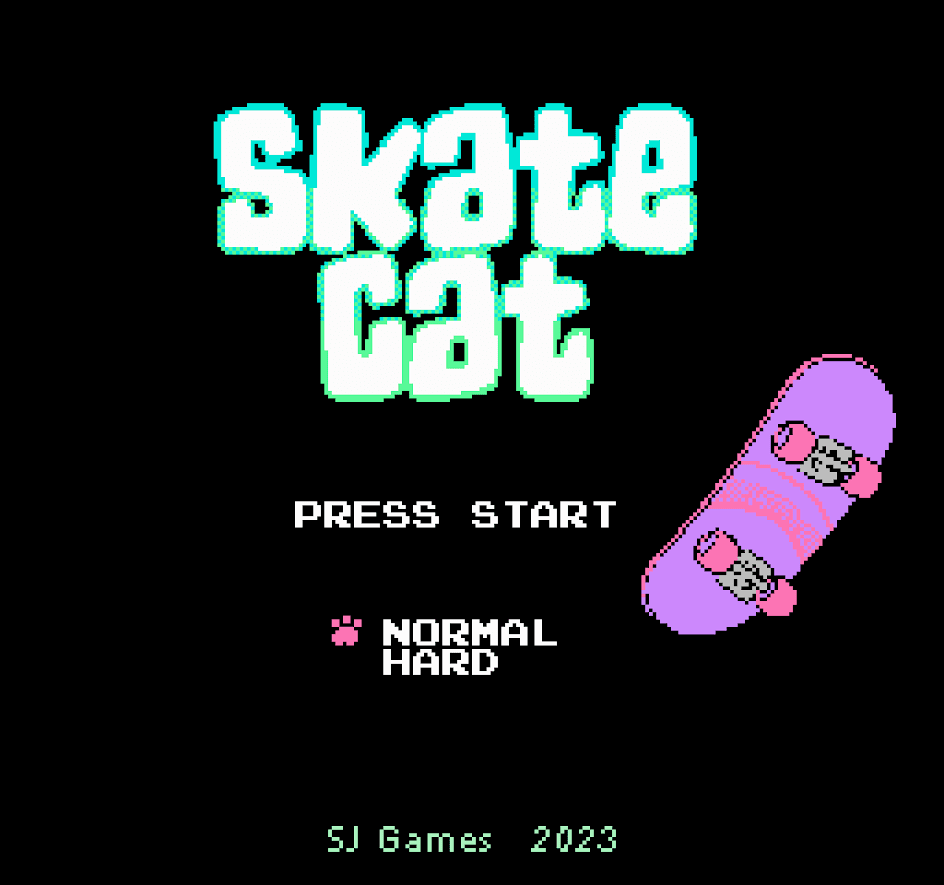
What was development like?
SJ: I worked using a software called NESmaker, which lets you create NES games. First, I sketched out my ideas on paper or in my notebook. Then, I pixelated them on the computer, created animations for various characters or monsters, and designed the screens. My dad helped me with the coding part since it's still a bit too tricky for me. Sometimes my dad didn't agree with my choices, so we'd have (friendly) arguments.
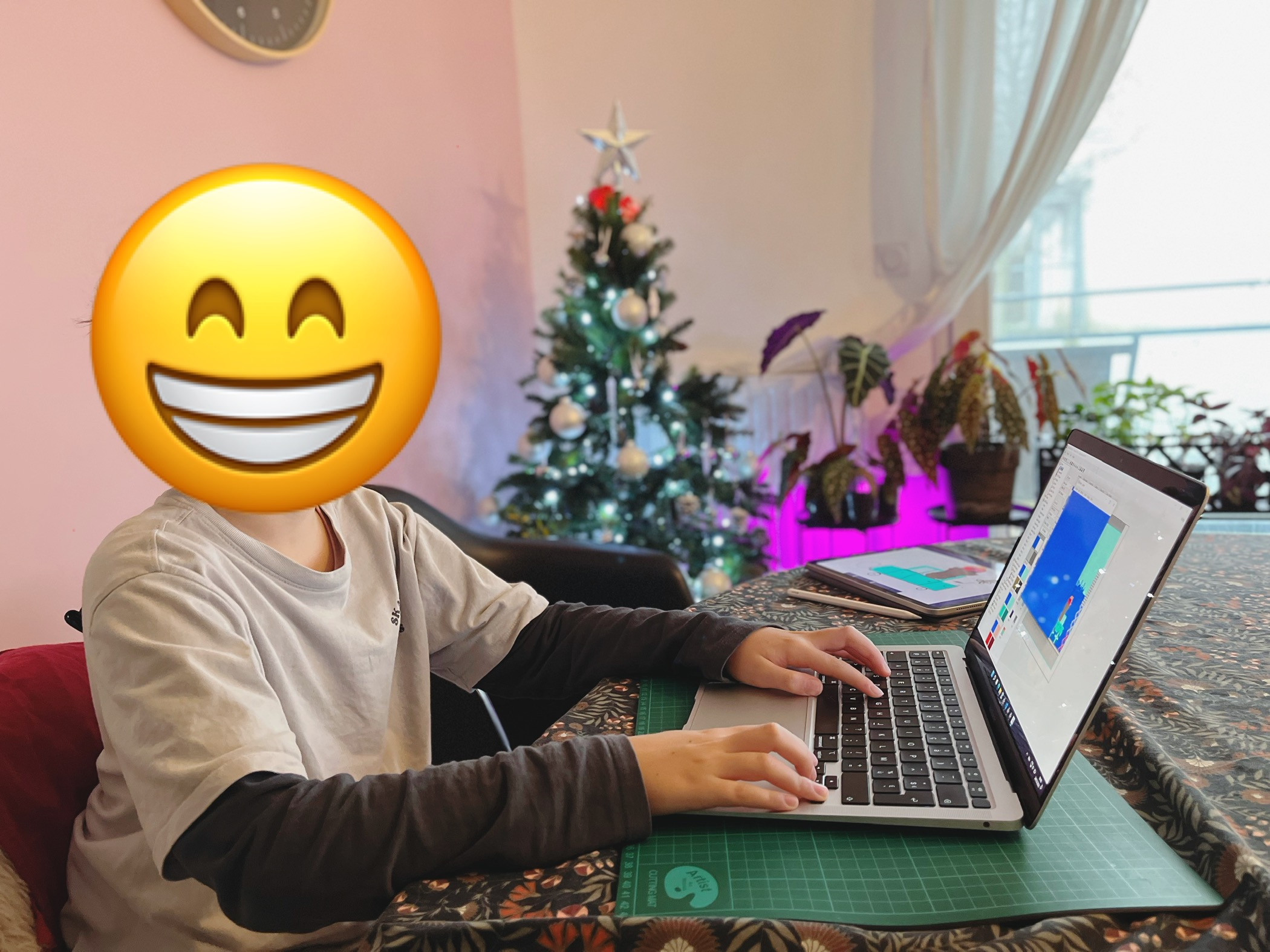
What did you learn about yourself through this game?
SJ: Making a game is always kinda tough. Coming up with cool levels that are both nice to look at and interesting, while also tweaking the difficulty, is a challenge. I enjoy it, even though I'm not super good at it yet.
What makes this game special?
SJ: Skate Cat is special because it's about a cat on a skateboard in a platform game... the physics are kind of different than usual platformer (more slippery). Plus, it's super cute!
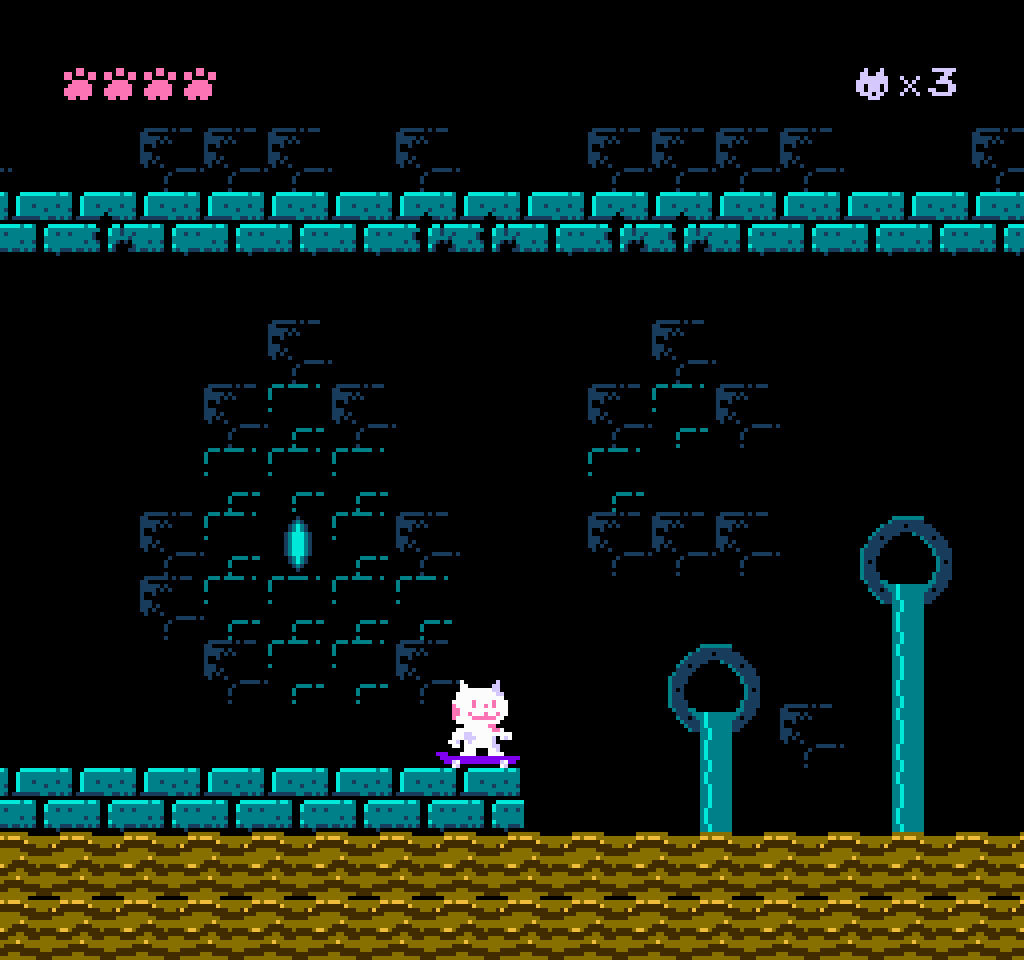
How does sound play a role in the game?
SJ: The sound makes everything cooler. The music and sound effects bring SkateCat's world to life, making it awesome! We added a lot of little sounds when the skateboard jumps, touches the ground, ... cat meows when you grab an extra life (or when you successfully enter a cheat code on the main screen). All the music and sfx were made by Jordan Davis (Raftronaut), who we already teamed up with for the previous games. He makes really cool music.
What games influenced this one the most?
SJ: I love classic platform games like Super Mario Bros or Kirby, and I'm a big fan of adventures like Zelda. They inspired me to create something fun and easy for everyone to enjoy.
Any fun stories or wild moments during development?
SJ: The first SkateCat was a different cat, a bit chubby and funnier. But players didn't really like the graphics, and most importantly, it didn't look enough like the kitten on the box. So, I had to change it, which was funny. And a bit sad at the same time, I liked the old cat, it was funny.
Do you think preserving older gameplay mechanics in new games is important?
SJ: Yeah, it’s like a ”tribute” to classic games.. A link to the past.
What's your favorite memory as a gamer?
SJ: I have great memories of playing Splatoon with my dad on the Wii U, and also spending hours together playing on our arcade machine.
Who will enjoy this game the most?
SJ: I think SkateCat will especially appeal to younger players who love cute cats and skateboarding. But the game can be a bit difficult at times, which might also good to older players who enjoy a fun challenge.
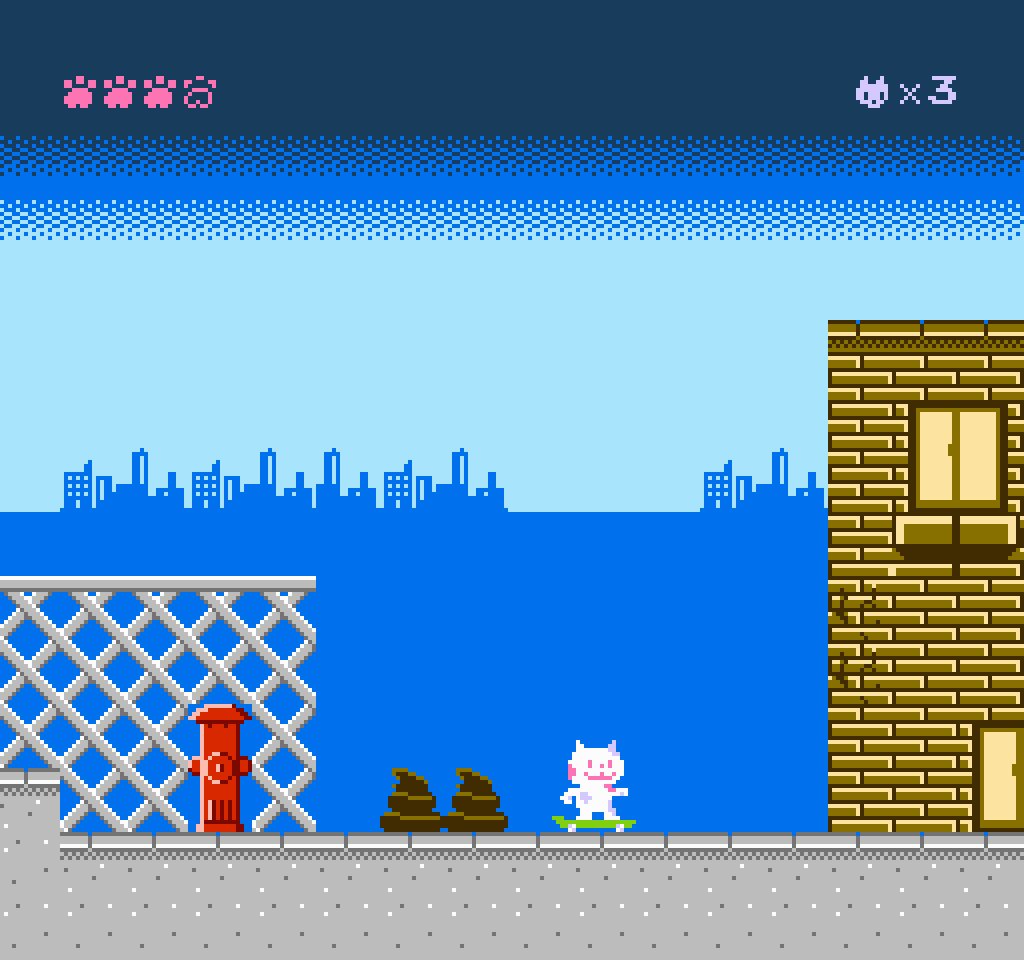
Bottom line, why must someone play this game?
SJ: Because SkateCat is fun and cute!
How do you want this game to be remembered?
SJ: I hope people will remember SkateCat as the best skateboarding cat game on the NES!
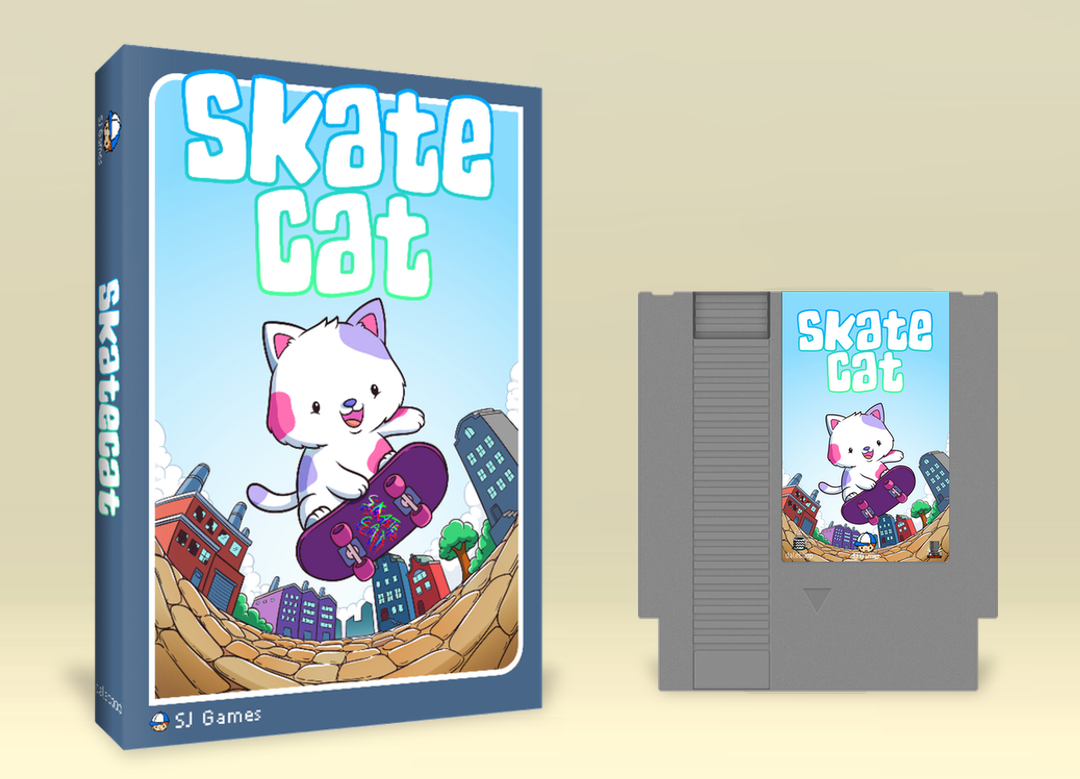
What's next?
SJ: I have some game ideas, but nothing has started yet. However, I already have drawings and sketches in my notebook. We'll see.
Anything else you'd like to add?
SJ: You can totally create your own video games, even if you're a kid. Just have fun and do what you love! Thanks for inviting me to this interview! *
-
Follow Dale Coop on X and check out Skate Cat here!







